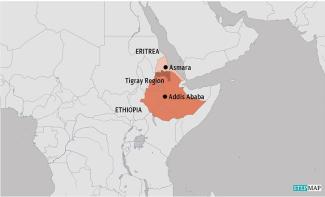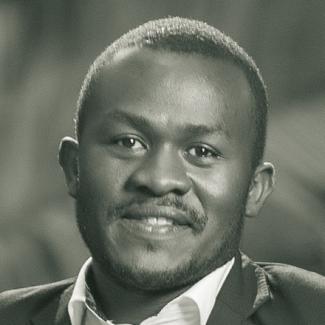Violent conflict
Reasons why the AU is dithering while Ethiopia burns

The African Union’s headquarter is in Addis Ababa, the Ethiopian capital. Its officers are from all over the continent; they live and work in the city. That is one reason why African heads of state and government are not putting more pressure on Abiy. Nobody wants a hostile landlord, and it would be risky for the AU to challenge the Ethiopian leader in any way. The response might not be generous.
Such considerations matter, but others are more important. The presidents and prime ministers who sit in the AU’s top decision-making organs, basically see the escalating conflict in much the same light as Ethiopia’s prime minister does. In this perspective, the legitimate government has been fighting an illegitimate insurgency in the past 13 months. When Abiy first sent troops into the Tigray region, he spoke of a “law and order operation”. The sub-national government of the TPLF (Tigray’s People’s Liberation Front) had defied his central government.
The backdrop is that the TPLF used to be the dominant force in the Ethiopian People’s Revolutionary Democratic Front (EPRDF). The EPRDF was an alliance of ethnicity-based rebel movements which, after years of guerilla warfare, ended the rule of military dictator Mengistu Haile Mariam in 1991. The EPRDF then ran the country for decades. In the spring of 2018, Abiy became its prime minister. He was its first top leader who was not from Tigray. Aware of anti-Tigrayan sentiments spreading across Ethiopia, the EPRDF certainly hoped that Abiy, an Oromo, would stabilise its power. However, he soon alienated the TPLF by dissolving the EPRDF and starting a new party.
For the leaders of other African nations, the conflict in Ethiopia looks like an attempt of an influential former elite to grab power once more. That is what they expect opposition groups might do in their own countries. Accordingly, many feel empathy toward Abiy and quietly support him. Making matters even more complicated, Eritrea is also involved in the conflict, with President Isaias Afwerki having become Abiy’s ally. At the turn of the millennium, Eritrea and then TPLF-led Ethiopia clashed in a war that claimed up to 100 000 lives. Eritrea is an AU member. It is also a brutal dictatorship.
AU leaders know, however, that they must not ignore the conflict, as that would bring into question the geopolitical relevance of the AU. Muassa Faki Mahamat, the chairman of the AU commission, therefore keeps his comments wishful, general and diplomatic. He has called on all parties to “safeguard the territorial integrity, unity and national sovereignty”, asked them to “engage in dialogue” and demanded an “immediate cessation of hostilities, full respect for the life and property of civilians (…) and infrastructure”. Those were good words, but carried no punch.
Perhaps one should not blame him. The fundamental challenge is that solving Ethiopia’s problems is really up to Ethiopians, and both sides are extremely stubborn. The AU has appointed Olusegun Obasanjo, the former Nigerian president, to mediate in the conflict. On the very day Obasanjo stated that “war represents a failure in politics”, both sides claimed territorial victory and threatened fresh offensives to recapture lost ground or gain additional land.
Violence has been escalating dreadfully since November 2020 (see Markus Rudolf on www.dandc.eu). The war has spread beyond Tigray, and civilians have become pawns in the battle for global opinion.
Obasanjo fully understands that neither Abiy nor the TPLF can yield to the other side. Both want victory, and neither is prepared to show mercy. Their militarised mindset was formed in the struggle against Mengistu and then further hardened during the Eritrean–Ethiopian war. Genuine dialogue is difficult, and outsiders cannot do much to bring it about.
It would certainly help if Abiy’s government stopped calling the TPLF “terrorists”. On the other hand, the TPLF must understand that inclusive policies result from complex and cumbersome negotiations. At this point, neither side is helping to make Ethiopia a peaceful and prosperous nation. Both sides must remember that only Ethiopians can solve Ethiopia’s problems.
Alphonce Shiundu is a Kenyan journalist, editor and factchecker.
Twitter: @Shiundu










